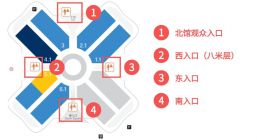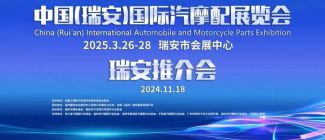Scan QRCode

Who is OEM is also a matter of knowledge.
Recently, the Ministry of Industry and Information Technology announced a batch of new car declaration information, among which some of the current popular car models were further disclosed. Quite surprisingly, there are still some new brands and products that are quietly joining, especially new energy products that account for the majority.
What have surfaced this time are the unprecedented Qilu Automobile and Ruiteng brands. Although these two brands are from Shandong and Hebei respectively, relevant information shows that the models of these two brands are all produced by Chery New Energy. Costin EC1 of Qilu Automobile is a miniature electric car similar to Chery Ant, while Ruiteng RT1 is a medium-sized electric car similar to Xiaopeng P7.
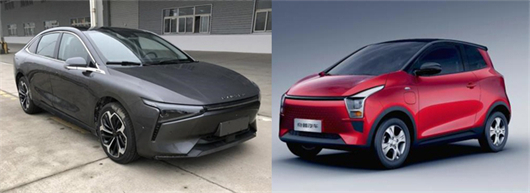
Since the new forces have built cars, they have to find traditional car companies for OEM production when they want to mass-produce models without obtaining the production qualifications. Weilai and Xiaopeng are still the same since they were established, including today's technology companies joining the wave of car manufacturing, such as Baidu and Xiaomi, are looking for foundries.
Other manufacturers, such as Foxconn, Geely Automobile, etc., have frequently announced cooperation with other companies for foundry. At present, the new car manufacturers have not taken much action for the time being, and the foundry vendors they are looking for cannot be disclosed, but Chery New Energy has taken a longer and farther step on the road of foundry.
catch that Chery
Relevant information shows that Qilu Automobile is a wholly-owned subsidiary of the Shandong Provincial Government (Qihe County) and was established on September 1, 2020. At present, Qilu Automobile has planned three major vehicle platforms and product lines. The total investment of the project is 5 billion yuan, of which 1 billion yuan is invested in the first phase.
Riteng Auto was established in November 2017 with a investment of 6 billion yuan. The People's Government of Shijiazhuang City, Hebei Province and Chery New Energy Automobile cooperate to build a mid-to-high-end smart car brand. It is reported that the first phase of the Ruiteng Automobile Plant has a planned annual production capacity of 100,000 vehicles. The first new car is built on the Chery New Energy LFS all-aluminum platform.
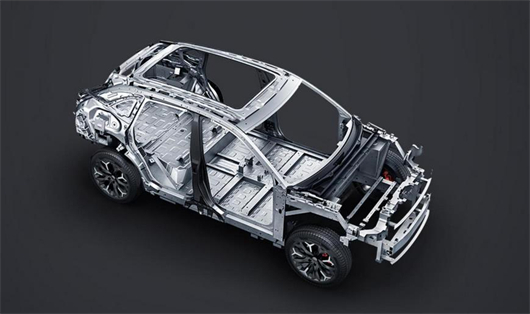
As we all know, Shandong and Hebei are the two major provinces for the production and sales of low-speed electric vehicles or "Old Tou Le" in China. Statistics show that the sales of low-speed electric vehicles in Shandong in 2019 are still as high as 450,000. From 2009 to 2020, Shandong has produced more than 4 million low-speed electric vehicles nationwide.
Low-speed electric vehicles have become the first choice for third- and fourth-tier regions due to their low price, no driver’s license, and ease of use. However, these electric vehicles have also attracted social attention due to issues such as quality and safety. Therefore, the government has also vigorously rectified the low-speed electric vehicle market in recent years, including the continuous self-regulation at the market level, causing low-speed electric vehicle manufacturers to undergo reshuffles one after another.
From the perspective of industrial upgrading, many low-speed electric vehicle companies have begun to transform and have officially entered the passenger car track. For example, Shandong Reading wholly acquired Sichuan Yema Automobile; Shandong Baoya acquired a 70.5% stake in FAW Jilin; Hebei Yujie applied for its own production qualification; Hebei Lingtu cooperated with Great Wall Motors.
However, real transformation is not achieved by obtaining production qualifications. In the field of new energy passenger vehicles, these car companies that have evolved from low-speed electric vehicles, due to their limited strength, are also unable to go further in the new energy industry. Especially in provinces like Shandong that do not have their own local auto companies, a strong endorsement is needed to achieve industrial expansion.
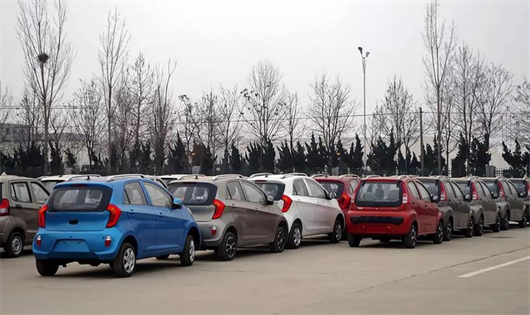
In recent years, Shandong Province has vigorously developed the new energy vehicle industry. There are 26 new energy vehicle manufacturers in the province. In 2020, 66,200 new energy vehicles (listed) will be added in the province, and the number of new energy vehicles will reach 405,900. Among them, there are 365,500 pure electric vehicles and 40,400 hybrid vehicles. The province has produced a total of 439,500 new energy vehicles, ranking third in the country.
Shandong Province has always valued the industrial chain of the automobile industry more than other provinces. In the field of commercial vehicles, Shandong has China National Heavy Duty Truck, Weichai Group and Shandong Heavy Industry, but in the field of passenger cars, there are only production bases of various brands. Therefore, Shandong is also in urgent need of passenger car brands and even seize an opportunity in the electrification era.
And this opportunity is that at the end of 2019, Qingdao Wudaokou New Energy Automobile Industry Fund Enterprise (Limited Partnership) ("Qingdao Wudaokou") successfully "delisted" with a capital increase of 14.45 billion yuan and became a new shareholder of Chery Holdings and Chery Automobile. Obviously, Qingdao Wudaokou can bring financial support for Chery, and Chery also needs to provide its own "housekeeping skills" for Qingdao and even Shandong as a whole.
In February of this year, Chery Automobile Qingdao Base started construction in the Qingdao Automobile Industry New Town in Jimo District, with a total investment of 23 billion yuan. Chery also became the fifth vehicle factory stationed in Qingdao. And the next one is Qilu Automobile, which can be seen from the name-Chery Shandong.
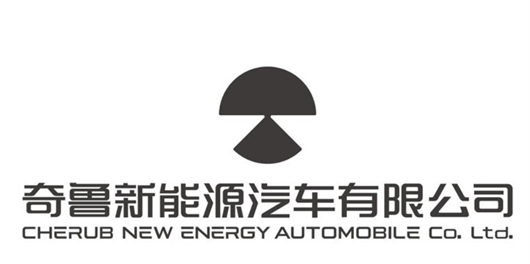
It was previously reported that Wuhu Chery Information Technology Co., Ltd. mentioned in a kick-off meeting for the "Qilu" project that Qilu is a brand-new company and its brand positioning is "national car". A new marketing system and R&D system will be established, and the overall construction will be based on Chery New Energy.
It can be seen that Shandong finally took off the "hat" of not having a local car company. And with Chery's technical support, the overall strength of its industrial chain may also be further improved. Especially since the rise of mini-electric vehicles represented by Wuling Hongguang MINIEV and Chery Little Ant since last year, the market has undergone tremendous changes.
The changes brought about by this industrial upgrade are far more profound than the dividends of low-speed electric vehicles. It can not only go further on the road of electrification, but also go wider. On May 20, Ruiteng Motors, another brand of Chery New Energy’s foundry, will sign 105 customers at its 2021 dealer recruitment meeting, with sales areas covering Beijing, Shanghai, Guangzhou, Chongqing, Chengdu, etc. Second-tier cities.
Foundry is not easy
From the perspective of Shandong and Hebei, it is the need for its own development, and from the perspective of Chery Automobile, it is also the need for its own development. Especially since the beginning of this year, as many technology companies have devoted themselves to making cars, discussions on the "foundry model" have become more frequent.

In early February, according to a Reuters report, Geely executives revealed that “the chairman of the company has a clear attitude towards foundry and is accepting and pursuing a rapid landing to achieve this goal.” As early as last year, Miao Wei, the Minister of Industry and Information Technology, specially started from the supply side. Mentioned the "foundry model", he said that the Ministry of Industry and Information Technology will orderly liberalize the OEM production of new energy vehicles.
The above situation is only one aspect of the foundry model. The most important thing for foundry car companies is to be able to resolve the pressure caused by overcapacity. Take Chery Automobile as an example. It has vehicle production bases and engine plants in Wuhu, Dalian, Ordos, Kaifeng, Guiyang, Qihe, Yibin, Jiaozuo and other places. The planned production capacity of passenger vehicles has reached 2 million.
However, in terms of sales volume, in 2020, Chery New Energy's sales volume is only 43,000; Chery Automobile (including new energy) has an annual sales volume of 464,800 vehicles, a year-on-year increase of 8.6%; the entire Chery Holding Group (including joint venture brands) sales volume is 730,000 vehicles. According to the current growth rate, there is a surplus of 2 million production capacity.
What’s more serious is that Chery Automobile’s 2020 net profit has fallen sharply by 98% year-on-year to only 7.372 million yuan, which is about 98% lower than the 392 million yuan in 2019. Based on the sales of approximately 440,000 vehicles last year, this means that Chery's net profit from bicycles is only about 16 yuan.
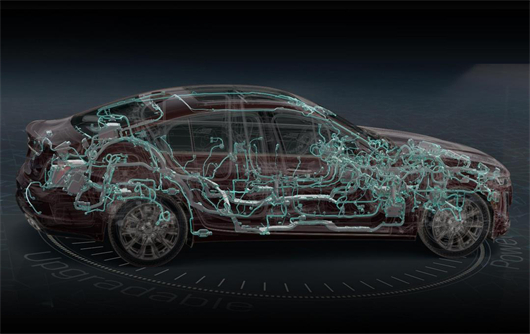
Therefore, in the face of a sharp decline in profits in the overall automobile industry, declining profit from bicycles, and transformation of the industry, providing foundry services is an "attempt" to expand its business scope, and it is also an opportunity for Chery Automobile. At present, China's autos enter the stock market and there are fewer and fewer incremental customers, making auto companies more seek to improve service levels, increase user stickiness, and explore new service value-added among current stock customers.
Looking back at the foundry model, this has also become a global convergence problem. "Nihon Keizai Shimbun" reported on March 18 that the auto industry has set off a wave of "factoryless" that does not build its own factories and entrusts production to external companies. According to the report, the background of the beginning of the fabless business model in the automotive industry is the gradual popularity of pure electric vehicles. Since the number of parts is less than that of engine vehicles, the planning and design of electric vehicles is easier.
In the process of transformation and upgrading of the global automobile industry, the upgrading of low-speed electric vehicles to passenger cars is a trend, and the upgrading of passenger cars to smart electric vehicles is another. In the past, traditional car companies mastered the key technology of internal combustion engines. Now, with the advent of the intelligent electric era, some smart technologies may be the advantages of technology companies, and traditional car companies will inevitably need to put down their bodies to learn.
As Yin Tongyue said, “Now the auto industry is not easy to do, and Autobots are not easy to behave. In the past, it was an endless marathon on this track. Now there is not only no marathon, but now we have to participate in triathlon and pentathlon. Competition." But what needs to be discerned is that on this endless track, for whom can we “consume” in order to enhance our competitiveness.
AMS2024 Exhibition Guide | Comprehensive Exhibition Guide, Don't Miss the Exciting Events Online and Offline
Notice on Holding the Rui'an Promotion Conference for the 2025 China (Rui'an) International Automobile and Motorcycle Parts Exhibition
On September 5th, we invite you to join us at the Wenzhou Auto Parts Exhibition on a journey to trace the origin of the Auto Parts City, as per the invitation from the purchaser!
Hot Booking | AAPEX 2024- Professional Exhibition Channel for Entering the North American Auto Parts Market
The wind is just right, Qianchuan Hui! Looking forward to working with you at the 2024 Wenzhou Auto Parts Exhibition and composing a new chapter!
Live up to Shaohua | Wenzhou Auto Parts Exhibition, these wonderful moments are worth remembering!
Free support line!
Email Support!
Working Days/Hours!
